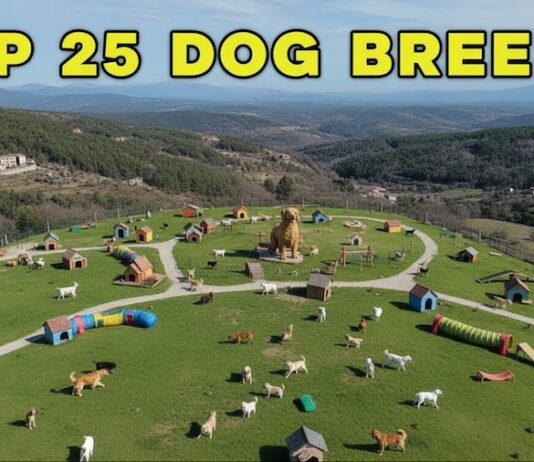The Dalmadoodle – A Charming Hybrid Dog Breed
Unveiling the Dalmadoodle: A Playful and Intelligent Companion
The Dalmadoodle, a captivating hybrid dog breed, combines the energetic spirit of the Dalmatian with the intelligence...
The Daisy Dog Breed – A Charming Companion
Unveiling the Daisy Dog: A Beloved Hybrid Breed
Discover the delightful world of the Daisy Dog, a charming hybrid breed renowned for its affectionate nature...
Cairnoodle: A Charming Hybrid Dog Breed
Unveiling the Cairnoodle: A Playful Mix of Energy and Intelligence
The Cairnoodle, a captivating hybrid dog breed, has captured the hearts of many dog lovers....
Cairnese: The Ultimate Hybrid Dog Breed
Discover the charm of the Cairnese, a unique hybrid dog breed that blends the playful energy of the Cairn Terrier with the affectionate nature...
Cairn Terrier Dog Breed: A Spirited Scottish Companion
The Cairn Terrier, a small, scruffy dog with a big personality, has captured hearts worldwide. Known for their playful nature, intelligence, and love of...
Cairn Terrier vs. Westie: Unveiling the Delightful Differences
Are you captivated by spirited, small-sized terriers? Look no further than the Cairn Terrier and the West Highland White Terrier (Westie)! Though they share...
Cairland Terrier (Cairn Terrier & Westie Mix): The Ultimate Guide
The Cairland Terrier, a delightful mix of the Cairn Terrier and West Highland White Terrier (Westie), is a small, energetic, and affectionate breed that...
Café Au Lait Poodle: Characteristics, History, and Care Guide for Pet Owners
The café au lait Poodle is a stunning and sophisticated variation of the beloved Poodle breed, known for its unique coffee-and-cream coat color that...
Can Dachshunds Be Left Alone? A Comprehensive Guide
Dachshunds, like all dogs, require social interaction and care, but many pet owners wonder if they can leave their Dachshund alone while they manage...
Dog Breeds That Don’t Play Fetch: Discover Which Breeds Aren’t Suited for This Game
Dog Breeds That Don't Play Fetch: Discover Which Breeds Aren't Suited for This Game
Ba Shar Dog Breed (Basset Hound & Shar Pei Mix) Info & Traits
The Ba Shar dog is a unique mix of the Basset Hound and Shar Pei, combining the floppy ears of the former with the...
Bagle Hound: Beagle & Basset Hound Mix Dog Breed
The Bagle Hound is an adorable hybrid breed resulting from the mix of a Beagle and a Basset Hound. This charming mix combines the...


















